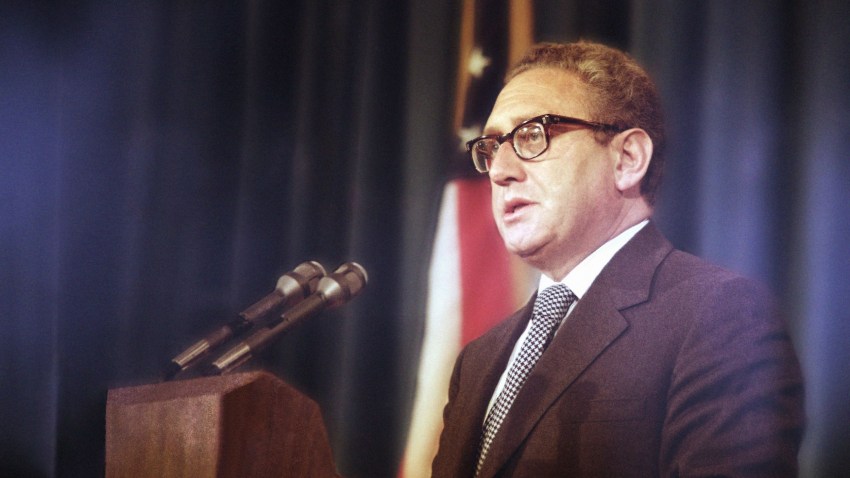There has perhaps been no more polarizing figure in the realm of U.S. foreign policy than Henry Kissinger. In the week since his death at age 100, the opinions expressed about the former U.S. national security adviser and secretary of state have been as varied as they have been passionate.
Kissinger has been vociferously praised and vehemently scorned. Some have labeled him a “war criminal,” while others characterized him as an ingenious grand strategist. Some have said that he was a towering figure of the 20th century who must be taken seriously, while others maintain that he wasn’t all that remarkable and will soon be forgotten. Still others have acknowledged that his legacy is complicated.
Kissinger entered the top echelon of the U.S. foreign policy establishment at a critical time, serving from 1969 to 1975 as national security adviser to former Presidents Richard Nixon and Gerald Ford, and from 1973 to 1977 as secretary of state to both as well. For most of that time, the U.S. was engulfed in the Vietnam War, a core theater of the broader Cold War competition between the U.S. and the Soviet Union. Just a few years earlier, that competition had nearly brought the two superpowers to the brink of nuclear Armageddon during the 1962 Cuban Missile crisis.

